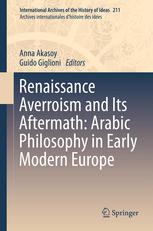

Most ebook files are in PDF format, so you can easily read them using various software such as Foxit Reader or directly on the Google Chrome browser.
Some ebook files are released by publishers in other formats such as .awz, .mobi, .epub, .fb2, etc. You may need to install specific software to read these formats on mobile/PC, such as Calibre.
Please read the tutorial at this link: https://ebookbell.com/faq
We offer FREE conversion to the popular formats you request; however, this may take some time. Therefore, right after payment, please email us, and we will try to provide the service as quickly as possible.
For some exceptional file formats or broken links (if any), please refrain from opening any disputes. Instead, email us first, and we will try to assist within a maximum of 6 hours.
EbookBell Team

4.4
102 reviewsWhile the transmission of Greek philosophy and science via the Muslim world to western Europe in the Middle Ages has been closely scrutinized, the fate of the Arabic philosophical and scientific legacy in later centuries has received less attention, a fault this volume aims to correct. The authors in this collection discuss in particular the radical ideas associated with Averroism that are attributed to the Aristotle commentator Ibn Rushd (1126-1198) and challenge key doctrines of the Abrahamic religions. This volume examines what happened to Averroes’s philosophy during the sixteenth, seventeenth and eighteenth centuries. Did early modern thinkers really no longer pay any attention to the Commentator? Were there undercurrents of Averroism after the sixteenth century? How did Western authors in this period contextualise Averroes and Arabic philosophy within their own cultural heritage? How different was the Averroes they created as a philosopher in a European tradition from Ibn Rushd, the theologian, jurist and philosopher of the Islamic tradition?